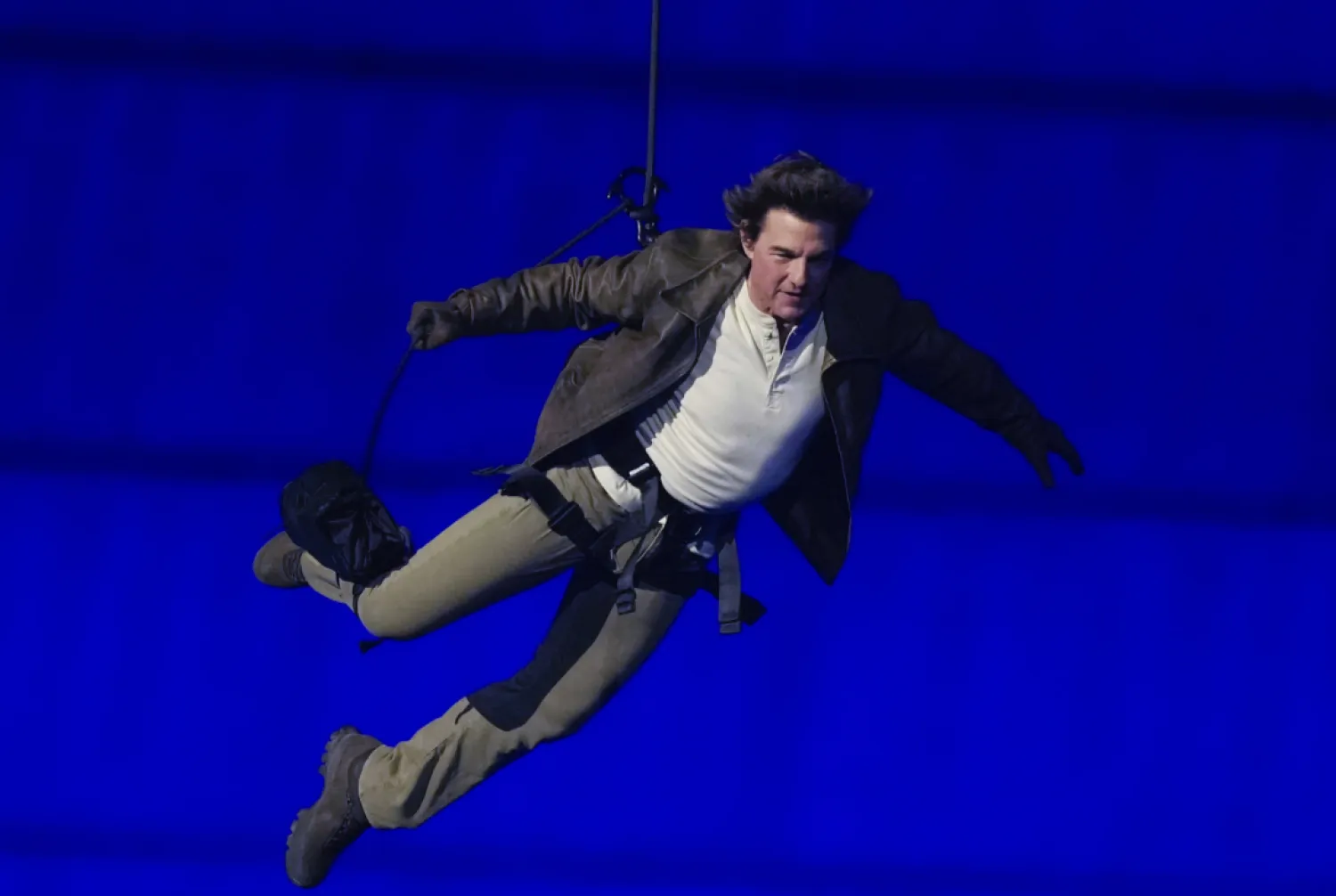Setting out to prove that topping Paris isn’t mission impossible, Los Angeles rolled out a skydiving Tom Cruise, Grammy winner Billie Eilish and other stars on Sunday as it took over Olympic hosting duties from the French capital, which closed out its 2024 Games just as they started — with joy and panache.
Capping two and a half extraordinary weeks of Olympic sports and emotion, Paris' boisterous, star-studded closing ceremony in France’s national stadium mixed unbridled celebration with a somber call for peace from International Olympic Committee President Thomas Bach, The AP reported.
Following in Paris' footsteps in 2028 promises to be a challenge: It made spectacular use of its cityscape for its first Games in 100 years, with the Eiffel Tower and other iconic monuments becoming Olympic stars in their own right as they served as backdrops and venues for medal-winning feats.
But the City of Angels, like the City of Light, showed that it, too, holds some aces.
Cruise — in his Ethan Hunt persona — wowed by descending from the top of the stadium to electric guitar “Mission: Impossible” riffs. Once his feet were back on the ground — and after shaking hands with enthralled athletes — he took the Olympic flag from star gymnast Simone Biles, fixed it to the back of a motorcycle and roared out of the arena.
The appetite-whetting message was clear: Los Angeles 2028 promises to be an eye-opener, too.
Still, this was largely Paris' night — its opportunity for one final party. And what a party it was. Thousands of athletes danced and sang the night away — reveling in the artistic show that celebrated Olympic themes and its firework flourishes.
Even Bach got the party bug, jokingly calling the Paris Games “Seine-sational” — a nod to the Seine River that, despite water quality concerns, staged Olympic triathlon and marathon swimming and the wacky and wonderful opening ceremony.
At what will be his last Games after announcing his intention to step down next year, Bach also made a somber appeal for ”a culture of peace” in a war-torn world.
“We know that the Olympic Games cannot create peace, but the Olympic Games can create a culture of peace that inspires the world,” he said. “Let us live this culture of peace every single day.”
Cruise then provided a change of gear.
After being lowered on a rope live from the roof's giddy heights, Cruise drove his bike past the Eiffel Tower in a prerecorded segment, onto a plane and then skydived over the Hollywood Hills. Three circles added to the O's of the famed Hollywood sign, creating five interlaced Olympic rings.
In the stadium, the athletes' enthusiasm bubbled over when crowds of them rushed the stage at one point. Stadium announcements urged them to double back. Some stayed, creating an impromptu mosh pit around Grammy-winning French pop-rock band Phoenix as they played, before security and volunteers cleared the stage.
Multiple French athletes crowd-surfed. U.S. team members jumped up and down in their Ralph Lauren jackets.
On the stadium's giant screens, Eilish, the Red Hot Chili Peppers, rapper Snoop Dogg — wearing pants with the Olympic rings after being a popular feature of the Paris Games — and Dr. Dre kept the party going in an prerecorded show from a California beach.
Each is a California native, including H.E.R., who sang the U.S. national anthem live at the Stade de France, crammed with more than 70,000 people.
The stadium crowd roared as French swimmer Léon Marchand, dressed in a suit and tie instead of the swim trunks he wore to win four golds, first collected the Olympic flame from the Tuileries Gardens in Paris.
Reappearing later in the stadium to spectators' chants of "Léon, Léon," Marchand then blew out the flame. The Summer Games were over.
Their next stop: LA in 2028.
The national stadium, France's largest, was one of the targets of Islamic State gunmen and suicide bombers who killed 130 people in and around Paris on Nov. 13, 2015. The joy and celebrations that swept Paris during the Games as Marchand and other French athletes racked up 64 medals — 16 of them gold — marked a major watershed in the city's recovery from that night of terror.
“Paris became a party again and France found itself," said Tony Estanguet, head of the Paris Games organizing committee.
The closing ceremony also saw the awarding of the last medals — each embedded with a chunk of the Eiffel Tower. Fittingly for the first Olympics that aimed for gender parity, they all went to women — the gold, silver and bronze medalists from the women’s marathon earlier Sunday.
The women's marathon took the spot of the men’s race that traditionally closed out previous Games. The switch was part of efforts in Paris to make the Olympic spotlight shine more brightly on the sporting feats of women. Paris was also where women first made their Olympic debut, at the Games of 1900.
The U.S. team again topped the medal table, with 126 in all and 40 of them gold.
As a delicate pink sunset gave way to night, athletes marched into the stadium waving the flags of their 205 countries and territories — a display of global unity in a world gripped by global tensions and conflicts. The stadium screens carried the words, “Together, united for peace.”
A golden-shrouded figure dropped spider-like from the skies into a darkened world of smoke and swirling stars. Olympic symbols were celebrated, including the flag of Greece, birthplace of the ancient Games, and the five interlaced Olympic rings, lit up in white in the arena where tens of thousands of lights glittered like fireflies.
Now, the lights are out. But the memories of Paris' special summer won't dim anytime soon.
“We saw ourselves as a people of incorrigible grumblers," Estanguet said. "We woke up in a country of wild fans who would not stop singing.”









